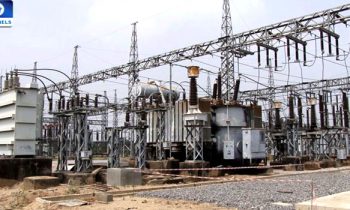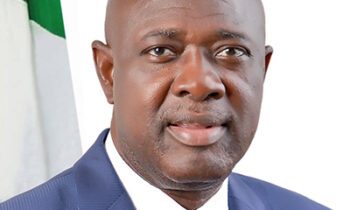President Muhammadu Buhari on Wednesday apologised to Nigerians for the inconvenience caused by the prolonged shortage of petroleum products.
In a statement by his Senior Special Assistant on Media and Publicity, Garba Shehu, he said his administration had successfully averted such a problem in its seven years in office.
“The administration knows the fuel shortage has placed a strain on Nigerian citizens and businesses, but relief is on the way. I specially apologise to all sections of the society for this,” said the President.
“The government is working round the clock to attend to this issue. An action plan agreed upon earlier this month is being implemented to address the scarcity. Working together with the Major Oil Marketers Association of Nigeria (MOMAN) and the Independent Petroleum Marketers Association of Nigeria (IPMAN), this plan is now bearing fruit.
“Sufficient fuel supply has returned to a handful of states, with the queues at stations falling. In the coming days, we expect this to be the case across the rest of the country. Looking to the longer term, funds are being targeted toward keeping fuel availability affordable for the country.
“The international energy markets have surged drastically in recent months, the government will however ensure that consumers are protected against these price spikes.”
The President revealed that he has received information that some people were not behaving properly at the depots, and among owners of petrol stations.
In this regard, he directed the Ministry of Petroleum Resources, the Nigerian Midstream and Downstream Petroleum Regulatory Authority (NMDPRA), the Nigerian National Petroleum Corporation (NNPC), and the entire security apparatus of the nation to take strong action against those responsible.
President Buhari also spoke about the issue of power outages witnessed recently in various parts of the country.
“The blackouts seen in the national grid are also being addressed,” he assured Nigerians. “A dip in hydroelectric generation due to seasonal pressures has coincided with technical and supply problems at thermal stations.
“On this, the government is also working tirelessly to resolve the issues at the latter to guarantee sufficient power flows into the national grid.”
As part of emergency measures put in place following a meeting convened with key stakeholders to address the low power generation in the country, the President said the main challenge was identified as being one of low gas power generation, as a result of sabotage of gas pipelines leading to the shutdown of power plants coupled with routine maintenance on other gas power plants.
To recover over 1000MW, he said actions were agreed upon between the players in the Nigerian Electricity Supply Industry (NESI) and NNPC.
According to President Buhari, the actions targeted the National Integrated Power Project (NIPP) plants, Niger Delta Power Holding Company (NDPHC), and power plants run under NNPC Joint Ventures, Agip and Shell (NAOC and SPDC).
He explained that progress on the key actions has already ensured the restoration of 375MW to the grid after the pipeline from “Okpai 1” was repaired.
To also ramp up the underutilised capacity of the NDPHC capacity, he said a $50 million gas supply agreement was being finalised to secure the sustainability of up to 800MW of underutilised NIPP assets.
The President assured Nigerians that the government’s attention to these problems would bear fruits very soon
Meanwhile, the Minister of Power, Abubakar Aliyu, has said that the national grid, which collapsed a few days ago, has now been recovered.
He disclosed this on Wednesday during a briefing after the Federal Executive Council (FEC) meeting presided over by the Vice President, Professor Yemi Osinbajo.
Aliyu said several resolutions have emerged from a series of emergency meetings held by the power ministry, where all stakeholders have extensively discussed the issues and resolved all bickering.
The minister, who likened Nigeria’s power challenge to a war situation, further maintained that the country generates up to 8,000 MW.
According to Aliyu, the shortage of gas and maintenance of generators, the fuel situation (which he argued has been addressed by the NNPC), all combined to exacerbate the problem with the national grid.
The power minister equally affirmed that the Federal Executive Council has given approval of N5 billion to open up and expand Lagos/Ogun, to reinforce power supply to that region.
By Olusola Bello




